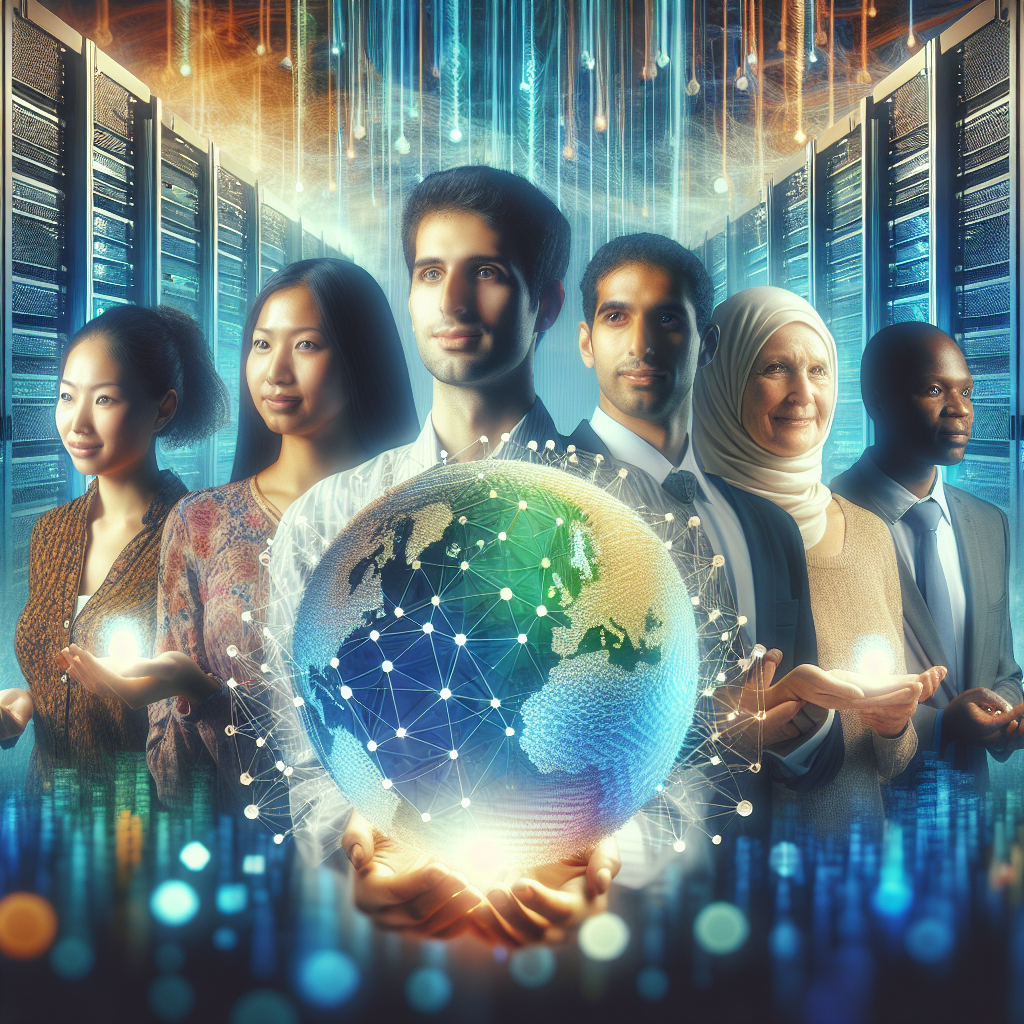In recent years, the democratization of artificial intelligence (AI) has become a hot topic in the tech industry. With the increasing availability of AI tools and resources, individuals from all walks of life are now able to leverage the power of AI to solve complex problems, make data-driven decisions, and even create their own AI applications. This democratization of AI has the potential to empower individuals and drive innovation across various industries.
Empowering individuals through AI democratization means giving them the tools and resources they need to harness the power of AI technology. This can include access to AI platforms, algorithms, data sets, and training resources that were previously only available to large corporations and research institutions. By making AI more accessible to individuals, we can unleash their creativity and ingenuity, enabling them to develop innovative solutions to real-world problems.
One of the key benefits of AI democratization is that it allows individuals to leverage the power of AI without having a background in data science or machine learning. Traditionally, developing AI applications required specialized knowledge and skills, making it inaccessible to many people. However, with the rise of user-friendly AI platforms and tools, individuals can now build and deploy AI models with minimal technical expertise. This opens up a world of possibilities for entrepreneurs, researchers, and hobbyists who may not have the resources to hire a team of data scientists.
Furthermore, AI democratization can also help address the issue of bias and discrimination in AI algorithms. When AI technology is developed and controlled by a small group of companies or institutions, there is a risk that the algorithms will reflect the biases and prejudices of those in power. By democratizing AI and allowing a diverse group of individuals to develop and deploy AI applications, we can help ensure that AI technology is more inclusive and fair.
Another important aspect of AI democratization is the potential for individuals to use AI for social good. By giving people the tools they need to develop AI applications, we can empower them to tackle pressing social issues such as poverty, healthcare, education, and the environment. For example, AI can be used to analyze large data sets to identify patterns and trends in disease outbreaks, optimize resource allocation in disaster response efforts, or improve access to education for underserved communities. By democratizing AI, we can harness the collective intelligence and creativity of individuals around the world to drive positive change.
Despite the many benefits of AI democratization, there are also some challenges and concerns that need to be addressed. For example, there is a risk that individuals may misuse AI technology for malicious purposes, such as spreading misinformation, invading privacy, or perpetuating discrimination. In order to prevent these negative outcomes, it is important to establish ethical guidelines and regulations for the development and use of AI technology. Additionally, there is a need to ensure that individuals have access to quality training and education resources to help them understand the implications of AI technology and use it responsibly.
In conclusion, AI democratization has the potential to empower individuals from all backgrounds to harness the power of AI technology and drive innovation across various industries. By making AI more accessible and inclusive, we can unlock new opportunities for creativity, collaboration, and social impact. However, it is important to address the challenges and concerns associated with AI democratization in order to ensure that the technology is used ethically and responsibly. With the right policies and regulations in place, we can harness the full potential of AI democratization to create a more equitable and sustainable future for all.
FAQs:
Q: What are some examples of AI democratization in action?
A: One example of AI democratization is the rise of user-friendly AI platforms such as Google’s TensorFlow and Microsoft’s Azure Machine Learning. These platforms allow individuals with minimal technical expertise to build and deploy AI models for a wide range of applications. Another example is the availability of open-source AI algorithms and data sets, which can be freely accessed and used by anyone to develop AI applications.
Q: How can individuals benefit from AI democratization?
A: Individuals can benefit from AI democratization by gaining access to powerful AI tools and resources that were previously only available to large corporations and research institutions. This can enable them to solve complex problems, make data-driven decisions, and create innovative AI applications without the need for specialized technical expertise.
Q: What are some of the challenges associated with AI democratization?
A: Some of the challenges associated with AI democratization include the risk of misuse of AI technology for malicious purposes, such as spreading misinformation or invading privacy. There is also a need to establish ethical guidelines and regulations for the development and use of AI technology to ensure that it is used responsibly.
Q: How can individuals contribute to AI democratization?
A: Individuals can contribute to AI democratization by sharing their knowledge and expertise with others, participating in open-source AI projects, and advocating for policies and regulations that promote the responsible use of AI technology. By working together, we can harness the full potential of AI democratization to drive positive change and innovation across various industries.

